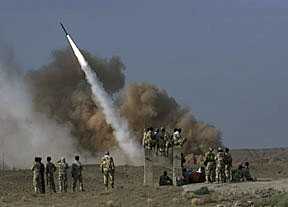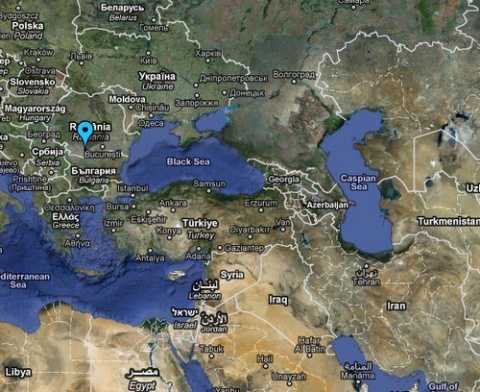By Mohammad Amin Mokarrami
BANDAR ABBAS – Turkish political analyst Bilgehan Alagoz says Turkey does not regard Iran as a threat to the security of the region.
“Turkey does not perceive Iran as a threat to Turkey or to NATO, so that is why Turkey made a great effort to not name Iran in this document (the NATO proposal for deployment of a missile defense system in Turkey),” Alagoz said in an interview with the Tehran Times on November 23 on the sidelines of the 20th international conference on the Persian Gulf in Bandar Abbas, in the southern province of Hormozgan.
The 20th international conference on the Persian Gulf, entitled Comprehensive Cooperation in the Persian Gulf: Mechanisms for Development and Regional Stability, was held on the shores of the Persian Gulf from November 22 to 23.
Alagoz presented an article entitled “An opportunity or threat for Iran: Turkey’s improving relations with the (P)GCC” to the conference and gave a presentation on her article at one of the four expert panels held at the conference.
Alagoz holds a B.A. degree in international relations from Istanbul University and an M.A. degree in Middle Eastern studies from Marmara University. She is currently a Ph.D. candidate at Marmara University and a full-time faculty member as a lecturer at the Institute of Middle East Studies of Marmara University.
Following is the text of the interview with Ms. Alagoz:
Q: Some people in Iran criticize the government for expanding relations with Turkey because it is a U.S. ally and a NATO member. At the same time, there are some Turkish secularists that do not approve of the expansion of relations with Iran because Iran has a religious system. How do you assess this situation?
A: Actually, we have allayed these concerns in both of the parties because we are not living in the Cold War period. Turkey is part of the Western world in terms of being a NATO member and in terms of being a candidate to (join) the European Union. The reason which makes Turkey a unique country is that it can create a mutual dialogue between the West and Iran. So we need to compromise at international levels in terms of relations with the international system and Iran. Turkey seems to be a unique partner for creating this kind of platform, so I guess we have allayed all of these concerns. Yes, there are some secularists in Turkey who are skeptical about relations with Iran, but it is not a great part of the population. Even in the Turkish military, there are generals who are motivated to enhance relations with Iran… So I guess we don’t have those kinds of doubts recently.
Q: Governments try to adopt foreign policies that serve their national interests. How is aligning with Iran beneficial to Turkey?
A: Recently we have had many bad experiences. I mean the Iraq war. We have experienced that when something happens in our region like a destabilizing event, it affects all of the countries in this region. Turkey and Iran, as the most important countries in this region, can play a major role in terms of creating stability in the region. Turkey also believes that if something happens in Iran, it will directly affect its external relations and also internal stability. I mean, you all know that Turkey is struggling against the PKK (Workers’ Party of Kurdistan) terrorist activities. Also, we experience great economic problems. So if anything happens to Iran, it will affect our political stability and economic stability. So Turkey believes that Iran should be part of the international community and not be excluded from the international community. That is why Turkey stands with Iran.
Q: It is clear that instability in the region will negatively affect Turkey, but it doesn’t seem that this concern is the only reason behind Turkey’s policy of establishing closer relations with Iran. It seems that Turkey is seeking to raise its profile in the international arena by mediating between Iran and the West. What is your view?
A: I guess the main reason is to eliminate the destabilizing factors in the region. Furthermore, Turkey and Iran also have deep cooperation in terms of energy and trade, so excluding Iran in any platform will also affect Turkey’s economy. These can be mentioned as the reasons why Turkey is standing with Iran.
Q: Can Turkey’s improving relations with the (Persian) Gulf Cooperation Council ({P}GCC) countries be considered a threat to Iran?
A: Actually, during the (PGCC) summit in 2009, a declaration was issued, and in this declaration there were some articles which could be (considered to be) critical about Iran’s situation… maybe Iran could get the impression that Turkey is trying to confront it through these Arab countries of the Persian Gulf. I don’t get that sense. But Iran may be concerned in terms of Turkey’s membership in NATO and in terms of the improvement in relations with these Arab countries, so this could be perceived as a kind of threat, but I believe that it does not pose a threat.
Q: As you know, Israel is the only player in the Middle East that possesses nuclear weapons. What can Iran and Turkey do to compel Tel Aviv to sign the nuclear Non-Proliferation Treaty (NPT) and to allow International Atomic Energy Agency inspectors to visit its nuclear facilities and to convince it to dismantle its nuclear weapons?
A: Several times, the current prime minister, Mr. Erdogan, emphasized that Israel should also think about its nuclear activities… I believe that in order to take Israel to mediation, it would be better to act with the Western world not with Iran, because Israel directly perceives Iran as a threat. At the moment, we have some problems with Israel, but in general, Turkey also has important relations with Israel. Israel should not be confronted by Turkey and Iran together. Israel’s nuclear situation is a great problem for the region, but for Turkey it is not good to act together with Iran in terms of Israel. For Turkey, it would be better to take the European Union and the United States to the same platform and not Iran.
Q: As the last question, Iranian officials are concerned about the proposed NATO missile defense shield that is going to be deployed in Turkey. What is your view?
A: I had the opportunity to listen to our president, Abdullah Gul, before I came to Iran, and he put great emphasis on the fact that Turkey does not perceive Iran as a threat to Turkey or to NATO, so that is why Turkey made a great effort to not name Iran in this document. But you should accept that Turkey is a NATO member… and has the right to conduct various activities with NATO. Maybe this missile system will raise some concerns for the Iranian side, but Iranians should keep in mind that Turkey has stood with Iran in many important platforms and Turkey has always confronted (Iran’s adversaries) during all these discussions
Tehran Times
![Turkey's President Gul and Russia's President Medvedev shake hands after signing documents in Moscow Turkish President Abdullah Gul (left) greets Russian President Dmitry Medvedev. Turkey-Russia economic relations are a key component of bilateral ties. [Reuters]](https://www.turkishnews.com/en/content/wp-content/uploads/2011/10/AARONphoto.jpg)





